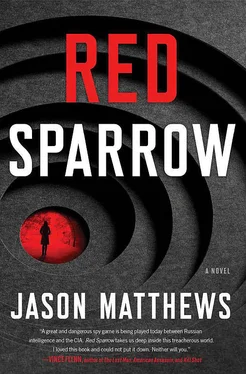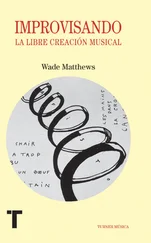=====
It was past midnight, and the Moskva River bend visible from General Korchnoi’s living room was a black ribbon between the high-rise lights of Strogino. The apartment blocks across the river were newer than the buildings on this side; construction cranes still towered above unfinished units. MARBLE made a favorite dinner of pasta alla mollica, tossed with anchovies, bread crumbs, and lemon. After washing up, he brought a glass of brandy into the living room, checked his watch, and went to the bookshelf that ran along the wall. He slid a small paring knife into the join of the top of the shelf, wiggling the blade to release two catches mortised into the wood. The top of the shelf opened on concealed hinges like a coffin lid, exposing a shallow compartment.
Korchnoi reached into the cavity and pulled out three gray metal boxes wrapped in a clean cloth. The first two were each the size of a cigarette pack, the third flatter and wider. Korchnoi connected the two small boxes end to end by fitting their tracked rails together. The flatter box—with a tiny Cyrillic keyboard—was in turn connected to the first two by a pinned plug. A stylus lay in a side clip holder. Using the stylus, Korchnoi depressed two recessed buttons to illuminate three tiny LEDs. The first was the battery/power indicator. Green, go. The second indicated whether the integral antenna in the top component could read the US Milstar Block II geosynchronous bird. Green, strong signal. The last LED indicated whether the transmission exchange, the rukopozhatie, the handshake, had been completed. Yellow light, standby.
Korchnoi used the stylus to depress keys to compose a routine message. He wrote plainly, eliminated spaces and punctuation, cryptic economies learned over the years while preparing secret-writing letters—he missed the tactile process of SW, rubbing the paper, preparing the inks, the featherweight pressure while printing the block letters.
He worked sitting in his armchair, the reading light over his shoulder, an old man on a Vermeer canvas, bent over his work. There was utter silence in the room. The message composed and signed “niko,” the free-from-duress indicator, Korchnoi pushed the transmit button and watched the yellow light. His message soared heavenward in a super-high-frequency burst in the Ka band, washed over the satellite, tickling its sensors. The already-stored reply was activated and returned on an attenuated signal in the Q band in the space of three seconds. Moscow slept, the windows of the Lubyanka were dark, yet Korchnoi had reached upward to touch fingertips with the Main Enemy. The LED winked green. Handshake. Successful exchange.
Korchnoi unwrapped a cord from a recess in the keyboard unit and plugged it into the input jack in the back of the small color television he had received from a CIA officer in a midnight trunk-to-trunk exchange three years ago along the M10. The set had been modified by the CIA, and Korchnoi turned it on, selected a preset channel. Three keystrokes with the stylus and the snowy blank screen turned black, blipped once, then turned black again, displaying two words in light typeface. Soobshenie: nikto, was the message: Message: none, it read. The period was missing, that was the real message, the signal flare: game begun.
Korchnoi turned off the television, coiled the cord back into its compartment, shut down power, and disassembled the commo equipment. He wrapped the components in the cloth and returned them to the concealment cavity, closing and locking the lid. He returned to his chair, his book on his lap, and took a sip of brandy. He reached up and turned the reading lamp off, and sat in the darkness of his apartment looking out at the city lights and the black river, certain in the knowledge that the SVR had seen and recorded everything he had done in the last thirty minutes.
=====
From August to October 1962, the KGB mounted blanket surveillance on Colonel Oleg Penkovsky of the GRU, including in his apartment overlooking the Moskva River. The colonel at the time was passing the West voluminous intelligence on Soviet ballistic missile capabilities. Officers of the FSB surveillance unit, who more than five decades later were watching General Vladimir Korchnoi, were too young to remember that Cold War case, but the measures they employed to gather evidence against their target were nearly identical to their predecessors’.
Across the river, from an apartment in a partially completed high-rise, three teams of watchers used colossal yoke-mounted naval binoculars to watch Korchnoi orient his covcom equipment to an azimuth of thirteen degrees to communicate with the satellite. From the apartment directly above, Korchnoi’s watchers had down-drilled pinholes in the ceiling of three rooms fitted with fisheye lenses and stick microphones, both slaved to digital recorders. They had watched Korchnoi access his bookshelf concealment device, assemble the components, and poke out his messages on the keyboard. They did not have the angle to read words off the screen of his television set, so they lowered a remote-head video camera on a fiberglass spar down the outside of the building to record words on the television through the living room window. Unlike with the Penkovsky case, they did not need three months. They had enough.
=====
Midnight. Across town, another team was going through Korchnoi’s office in the Americas Department on the second floor of Yasenevo. Apart from a thorough physical search of the office, desk, credenza, and containers, technicians minutely took swab samples from a number of surfaces: keyboard, desk drawer pulls, safe handles, file folders, teacup, and saucer. The next morning Zyuganov brought in the lab report and Egorov snapped it out of his hand: Metka indicated in trace amounts, inside doorknob, right edge of desk blotter. Analysis: Compound 234, lot number 18. Host: Nash, N., Amerikanskij posol’stvo . The American Embassy.
=====
Korchnoi returned home from Yasenevo after work, the early twilight bright over the trees along the river. His legs were leaden and his chest felt constricted as he walked along the esplanade from the Metro stop. The building was quiet but for the murmur of television sets behind the doors, and smells of cooking food were heavy in the corridor. The instant MARBLE opened his apartment door, he knew he was caught. The key had always stuck; he normally had to jiggle it to turn the lock. Tonight the cylinder felt silky. They had sprayed graphite in the keyway to lubricate it.
There were five men in his apartment standing in a semicircle around the front door. Rough, lean faces, square-jawed and hard-eyed, wound up. They wore jeans, tracksuits, leather jackets, and they swarmed the old man the minute the door opened. He knew enough not to resist, but they grabbed his legs and arms and picked him up off the floor. They moved quickly, silently, a forearm around his throat, two others specifically holding his arms. They always pick you up, he thought, but where am I going to run? He said nothing as they forced a rubber wedge that smelled of drains between his back teeth ( Not to be biting down on cyanide capsule, please, comrade ) and they stripped him to his underwear, never letting go of his limbs ( Not to be using weapons or buttons or needles in clothing, please, comrade ). They forced an ill-fitting tracksuit on him and carried him bodily down the stairwell, passing at least ten other men in leather coats standing on the landings. He was wedged into the back of a dark-green van, their hands never letting go of his arms and legs. Pain ran through Korchnoi’s body; he was losing feeling in his arms where the men were gripping him tightly. It doesn’t matter, he thought, preparing himself for the next chapter. He knew what was coming.
Читать дальше












